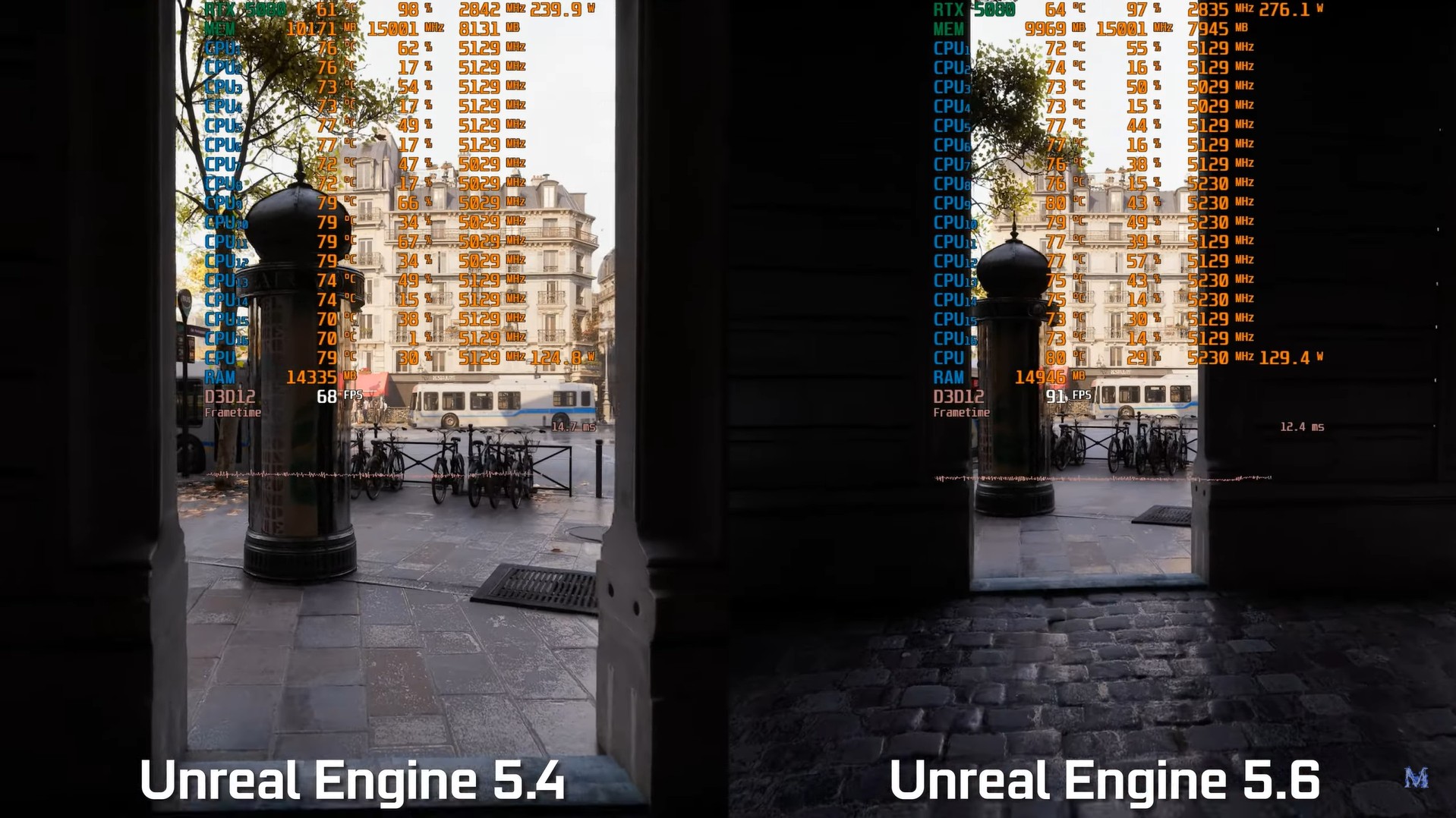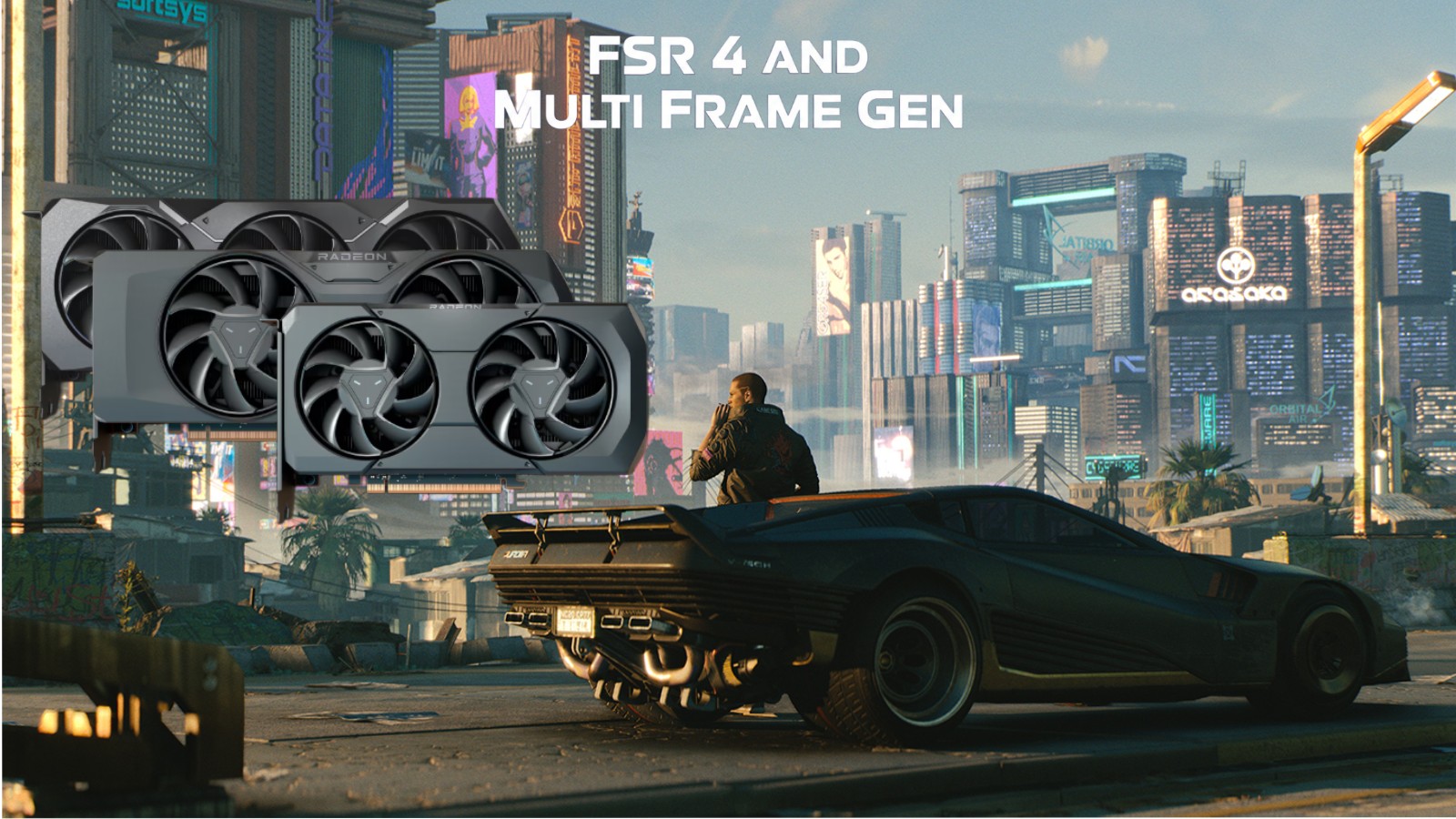- A new comparison video reveals that Unreal Engine 5.6 provides notable performance improvements over 5.4.
- The benchmarks were conducted at 4K and 1440p with Nanite and Hardware Lumen on an RTX 5080 and an Intel Core i7-14700F.
- The GPU performance saw improvements of about 25%, and CPU-bound scenarios experienced FPS boosts of over 30% in comparison.
Unreal Engine 5 has proven to be a double-edged sword for studios. It provides a standardized way of developing titles with stellar visuals and gameplay, but they also require high-end rigs. However, new testing suggests UE5 is finally addressing its biggest criticism.
Why it matters: The testing reveals that Unreal Engine 5.6 provides notable performance jumps in one of the areas where the engine has lacked the most, upgrading CPU thread parallelization capabilities to enable huge FPS boosts.
A video comparison by MxBenchmarkPC reveals that Unreal Engine 5.6 offers significant performance boosts compared to 5.4, especially in CPU-bound scenarios. The FPS increases greatly compared to the old version, which is currently in use by many AAA studios.
The detailed comparison was done using the Paris Tech Demo at 4K and 1440p with Nanite and Hardware Lumen (Ray Tracing) and Ultra settings on an RTX 5080 and an Intel Core i7-14700F. The performance difference between the two versions can be as much as 45FPS.
The testing reveals that GPU performance improved by about 25% at 1440p, while the CPU-bound scenario at 720p saw a significant jump, with over a 30% boost and more stable frame rates. Enhancements to image quality are also noticeable in the comparison.
For those unfamiliar, Unreal Engine 5.6 addresses certain CPU issues and enhances the handling of hardware ray tracing, enabling Lumen Global Illumination to run more smoothly. The engine now also loads game objects faster and handles physics much better.

The response to the performance improvements has been quite positive because UE5.6 handles CPU-based scenarios much better now.
However, many users across forums were also irked because a lot of the gaming studios will likely not switch to the new engine version for their ongoing projects. So, we might not see its widespread adoption in the next five years.
Do you think Unreal Engine 5.6 addresses some of the biggest concerns that the criticisms have raised over the years? Is it a step in the right direction? Let us know your thoughts in the comments below, or join the discussion on the Tech4Gamers forum.
Thank you! Please share your positive feedback. 🔋
How could we improve this post? Please Help us. 😔
Shameer Sarfaraz has previously worked for eXputer as a Senior News Writer for several years. Now with Tech4Gamers, he loves to devoutly keep up with the latest gaming and entertainment industries. He has a Bachelor’s Degree in Computer Science and years of experience reporting on games. Besides his passion for breaking news stories, Shahmeer loves spending his leisure time farming away in Stardew Valley. VGC, IGN, GameSpot, Game Rant, TheGamer, GamingBolt, The Verge, NME, Metro, Dot Esports, GameByte, Kotaku Australia, PC Gamer, and more have cited his articles.




